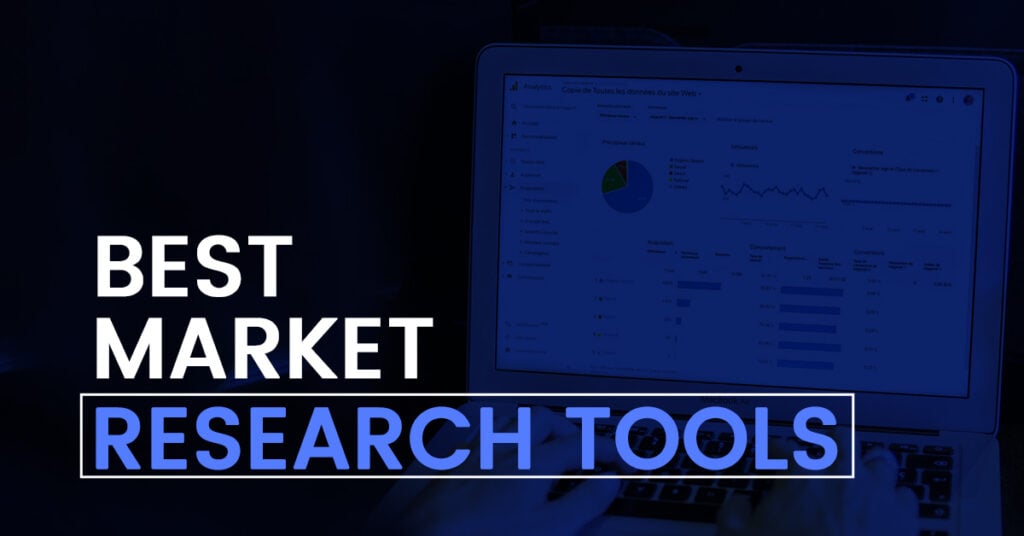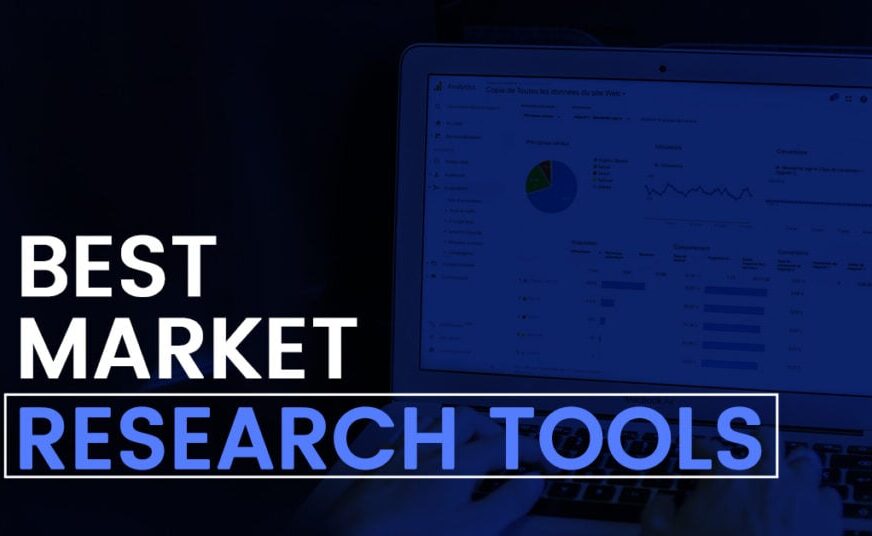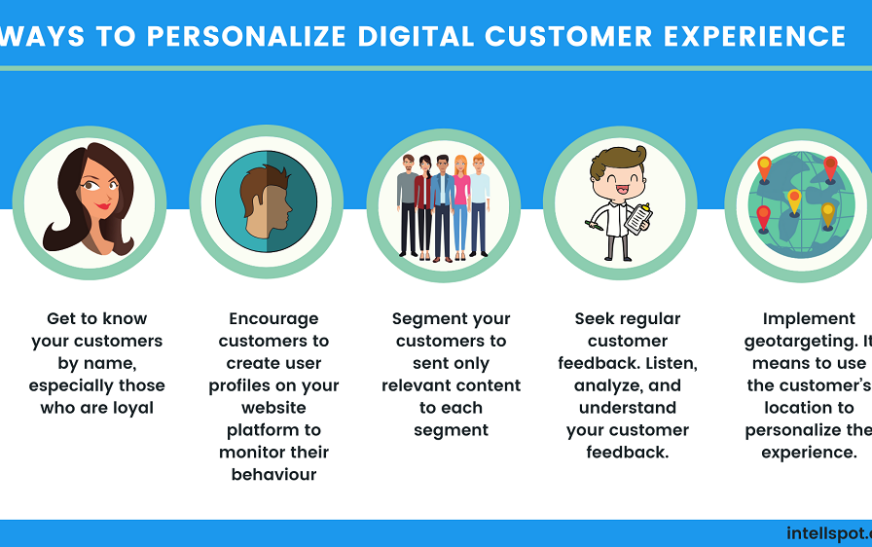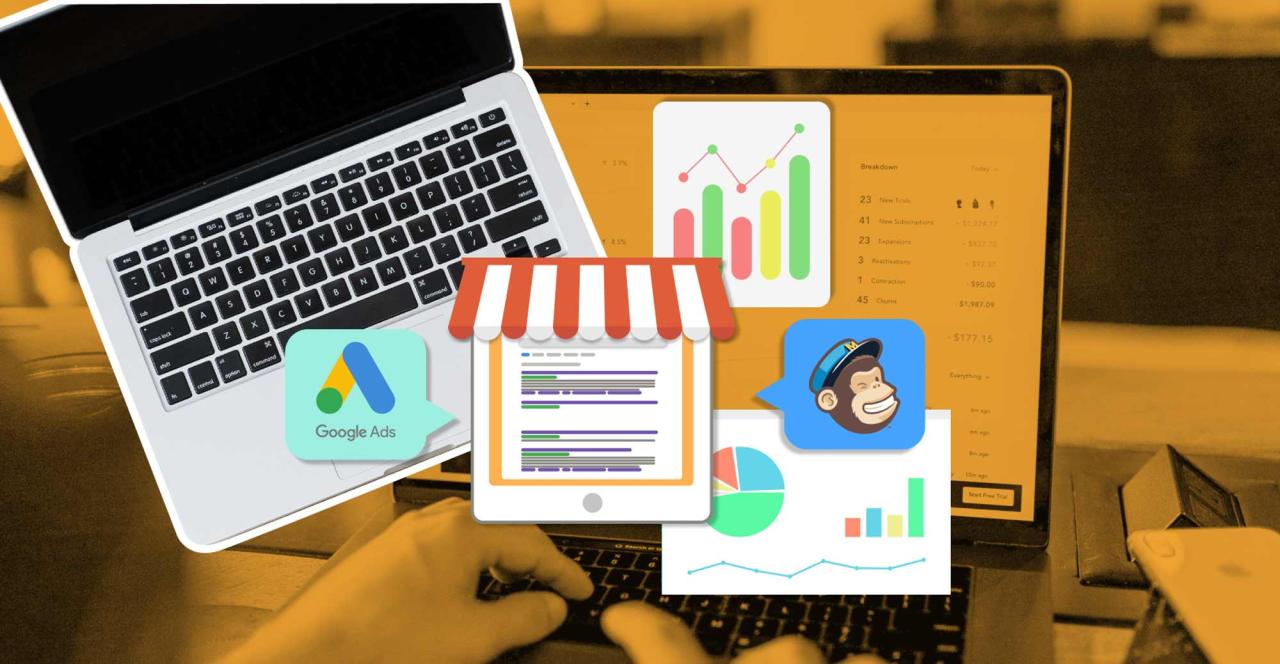As The Best Digital Tools for Market Research takes center stage, this opening passage beckons readers into a world crafted with good knowledge, ensuring a reading experience that is both absorbing and distinctly original. In today’s fast-paced digital landscape, the use of advanced tools has become imperative for businesses looking to stay ahead in the competitive market.
Market research tools play a crucial role in providing valuable insights and understanding consumer behavior, ultimately guiding strategic decision-making. Let’s delve into the realm of digital tools that are revolutionizing the market research industry.
In this comprehensive guide, we will explore the significance of leveraging digital tools for market research, the different types of tools available, best practices for selecting the right tools, and real-world case studies showcasing successful implementations. By harnessing the power of these tools, businesses can gain a competitive edge and drive growth in today’s dynamic market environment.
Overview of Market Research Tools
Using digital tools for market research is crucial in today’s fast-paced business environment. These tools help businesses gather, analyze, and interpret data more efficiently and accurately than traditional methods. By leveraging digital tools, companies can gain valuable insights into consumer behavior, market trends, and competitive landscapes, enabling them to make informed decisions and develop effective strategies.Digital tools enhance the efficiency and accuracy of market research by automating repetitive tasks, streamlining data collection and analysis processes, and providing real-time updates and insights.
With the ability to access vast amounts of data from various sources, businesses can quickly identify patterns, trends, and opportunities that may have otherwise gone unnoticed. Additionally, digital tools allow for faster and more targeted research, enabling businesses to adapt to changing market conditions and consumer preferences more effectively.Some popular digital tools used in market research include:
Google Analytics
Embracing digital tools can take your email marketing campaigns to the next level. By utilizing tools like analytics software and automation platforms, you can enhance your strategies and reach a wider audience. Learn more about how these digital tools can improve your email marketing campaigns here.
A web analytics tool that provides businesses with valuable insights into website traffic, user behavior, and conversion rates.
SurveyMonkey
An online survey platform that allows businesses to create and distribute surveys to collect feedback from customers and prospects.
SEMrush
A digital marketing tool that provides competitive intelligence, research, and insights to help businesses optimize their online presence.
Social Mention
As remote work continues to rise, having the best digital tools is essential for productivity and efficiency. Stay ahead of the game in 2024 by exploring the top digital tools for remote work. Discover how these tools can streamline your workflow and enhance collaboration here.
A social media monitoring tool that tracks mentions of a brand, product, or across various social media platforms, providing businesses with valuable insights into online conversations and sentiment.These tools, among many others, play a vital role in helping businesses gather actionable data, understand market dynamics, and stay ahead of the competition in today’s digital age.
Types of Digital Tools for Market Research

In the realm of market research, digital tools play a crucial role in gathering and analyzing data to make informed business decisions. There are various types of digital tools available that cater to different aspects of market research, each offering unique features and functionalities.
Survey Tools
Survey tools are essential for collecting feedback and insights from target audiences. These tools allow researchers to create customized surveys, distribute them to specific demographics, and analyze the responses efficiently. Survey tools like SurveyMonkey, Google Forms, and Typeform offer a wide range of question types, templates, and reporting options, making it easier to gather valuable data from respondents.
Analytics Tools
Analytics tools are instrumental in interpreting and visualizing data collected through various channels. These tools help researchers track website traffic, user behavior, and campaign performance to derive meaningful insights. Popular analytics tools such as Google Analytics, Adobe Analytics, and Mixpanel provide in-depth reports, dashboards, and data visualization features to measure and analyze marketing efforts effectively.
Social media management requires a strategic approach backed by the right digital tools. From scheduling posts to analyzing engagement, these tools can help you stay organized and optimize your social media presence. Find out more about the best digital tools for social media management here.
Social Media Monitoring Tools
Social media monitoring tools enable businesses to monitor and analyze conversations, trends, and mentions across different social media platforms. These tools help in understanding consumer sentiment, tracking brand mentions, and identifying emerging trends in real-time. Platforms like Hootsuite, Brandwatch, and Sprout Social offer robust social listening capabilities, sentiment analysis, and competitor benchmarking to enhance market research strategies.
Research Tools
research tools are crucial for understanding search intent, identifying relevant s, and optimizing content for search engines. These tools provide insights into search volume, competition, and trends to improve strategies. Popular research tools such as Ahrefs, SEMrush, and Moz Explorer offer comprehensive analysis, competitor research, and content optimization recommendations to drive organic traffic and enhance market visibility.
Heatmap Tools
Heatmap tools help visualize user interactions on websites by highlighting areas of high and low engagement. These tools provide valuable insights into user behavior, preferences, and pain points to optimize website design and content. Platforms like Crazy Egg, Hotjar, and Lucky Orange offer heatmap analytics, session recordings, and A/B testing features to improve user experience and conversion rates.
Best Practices for Choosing Market Research Tools
When it comes to selecting the best digital tools for market research, there are several key criteria to consider. Evaluating the effectiveness of a market research tool involves looking at factors such as cost, user-friendliness, and data security. Here are some best practices to keep in mind:
Criteria for Selecting Market Research Tools
- Accuracy and Reliability: Ensure that the tool provides accurate and reliable data to support your research efforts.
- Customization Options: Look for tools that allow you to customize surveys, questionnaires, and data analysis to meet your specific needs.
- Integration Capabilities: Choose tools that can seamlessly integrate with other software systems you may be using for a more efficient workflow.
Tips for Evaluating Tool Effectiveness
- Conduct a Trial Run: Test out the tool with a small sample project to see how it performs in real-world scenarios.
- Seek Feedback: Gather input from team members or other users who have experience with the tool to get a better understanding of its strengths and weaknesses.
- Compare Features: Compare the features and functionalities of different tools to determine which one aligns best with your research objectives.
Considerations for Cost, User-Friendliness, and Data Security, The Best Digital Tools for Market Research
- Cost: While cost is an important factor, remember that investing in a high-quality tool can lead to more accurate and actionable insights in the long run.
- User-Friendliness: Choose a tool that is intuitive and easy to use to streamline the research process and maximize productivity.
- Data Security: Prioritize data security by selecting tools that adhere to industry standards and regulations to protect sensitive information.
Case Studies of Successful Market Research Using Digital Tools: The Best Digital Tools For Market Research
Market research is a crucial aspect of any business strategy, and the use of digital tools has revolutionized the way companies gather insights and make informed decisions. Let’s explore some real-world examples of companies that have leveraged digital tools successfully in their market research efforts.
Case Study 1: Company A
Company A, a leading e-commerce platform, utilized advanced data analytics tools to track customer behavior and preferences. By analyzing the data collected from website visits, purchases, and feedback surveys, Company A was able to identify trends and patterns in consumer behavior.
This valuable insight helped them tailor their marketing campaigns and product offerings to better meet the needs of their target audience.
Case Study 2: Company B
Company B, a global consumer goods company, implemented social media monitoring tools to gather real-time feedback from customers. By monitoring social media platforms for mentions of their brand and products, Company B was able to quickly address any issues or concerns raised by customers.
This proactive approach not only improved customer satisfaction but also helped Company B stay ahead of their competitors in the market.
Case Study 3: Company C
Company C, a tech startup, utilized online surveys and focus groups conducted through digital platforms to gather insights from their target market. By directly engaging with their potential customers and gathering feedback on their product features and pricing, Company C was able to make informed decisions on product development and marketing strategies.
This hands-on approach to market research played a key role in the successful launch of their product.
Final Conclusion
![]()
As we conclude our exploration of The Best Digital Tools for Market Research, it becomes evident that embracing technological advancements is key to unlocking actionable insights and driving business success. By incorporating these innovative tools into their research strategies, companies can adapt to evolving consumer preferences, optimize their marketing efforts, and make informed decisions that propel them towards sustained growth and profitability.
The future of market research lies in the hands of those willing to embrace the transformative power of digital tools.








